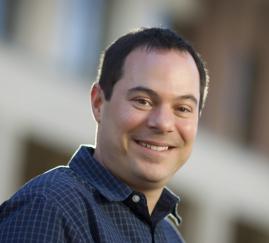
Since 2001, Brian Strahl has served as a faculty member at the University of North Carolina (UNC). Dr. Strahl holds his primary appointment in the Department of Biochemistry & Biophysics, and has a secondary appointment in UNC's Lineberger Comprehensive Cancer Center. In 2014, Dr. Strahl was promoted to full Professor. Brian Strahl is also the Vice Chair in the Department of Biochemsirty & Biophysics and is the Faculty Director of the UNC High-Throughput Peptide Synthesis and Array Core Facility. Most recently, Dr. Strahl launched a new program at UNC in Chromatin and Epigenetics.
In addition to academic teaching, Dr. Strahl has been conducting ground-breaking research in the field of epigenetics where his laboratory has been studying the role of histone post-translational modifications in chromatin structure and function. In particular, his group has been exploring the role of histone-modifying enzymes in gene transcription, and how multiple modifications work together to regulate the diverse functions associated with DNA. Brian Strahl's laboratory has contributed to the finding that a variety of enzymes that either methylate, acetylate or ubiquitinylate histones contribute to the transcription elongation process, in adition to how chromatin associated proteins "read" the histone code. Dr. Strahl's current efforts are aimed at understanding how the proteins that "write" and "read" the distinct types of histone modifications found in chormatin contribute to genome organization, gene regulation and how their dysregulation leads to human disease such as cancer.
Brian Strahl has received a number of awards for his work, including the ASBMB Schering-Plough Research Institute Award for outstanding contributions to biochemistry and molecular biology research, as well as the Exceptional, Unconventional Research Enabling Knowledge Acceleration (EUREKA) award from the National Institutes of Health. Most recently, Dr. Strahl was named an Oliver Smithies Investigator at UNC (2018).
Dr. Strahl is funded by multiple grants from the National Institutes of Health and the National Science Foundation to explore novel mechanisms of histone modifications.
